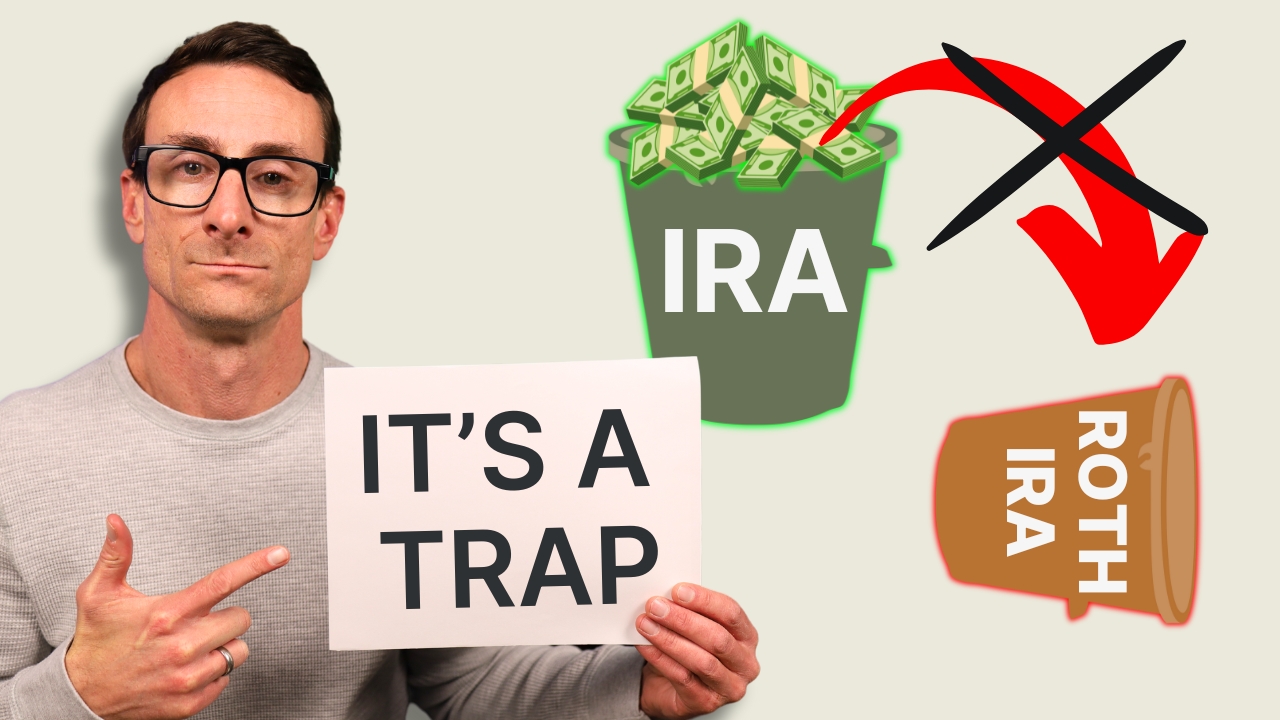Roth conversions are a popular strategy in retirement planning, offering the allure of tax-free growth and fewer distribution requirements. But what if they don’t always make sense? Many retirees fall into the trap of making costly Roth conversion mistakes that could derail their financial goals. This guide explores nine scenarios where skipping a Roth conversion might save you time, money, and frustration.
Resources:
When Roth Conversion Mistakes Happen: 9 Scenarios to Avoid
Roth conversions are often touted as a “no-brainer” for retirees, thanks to the promise of tax-free growth and no required minimum distributions (RMDs). While they can be a powerful tool in the right circumstances, they aren’t always the best move. In fact, in some situations, Roth conversion mistakes can cost more than they’re worth. Here are nine scenarios where skipping a Roth conversion might save you from an expensive mistake.
1. You’re in a High Tax Bracket
Roth conversions are taxed as ordinary income. If you’re already in a high tax bracket, converting could push you into an even higher bracket, making the upfront cost prohibitively expensive. For some, it may make sense to wait for a year when income is lower.
2. You Have Limited Time to Benefit
The tax-free growth of a Roth IRA is most effective over the long term. If you’re already in your late 70s or 80s, you may not have enough time to recoup the taxes paid on the conversion through future growth.
3. You’re Relying on Income-Based Programs
Roth conversions increase your taxable income for the year, potentially impacting your eligibility for income-based benefits like Medicare premiums or financial aid for a family member.
4. You Don’t Have Cash to Pay the Taxes
If you need to dip into your retirement savings to pay the taxes on the conversion, it could negate much of the benefit. Avoiding this common Roth conversion mistake is key to making the strategy worthwhile.
5. Your Beneficiaries Are in a Lower Tax Bracket
If you plan to leave your IRA to heirs who are in a lower tax bracket than you are, it might be more cost-effective for them to inherit and pay taxes on the funds rather than converting now.
6. You Plan to Leave Charitable Bequests
If you intend to donate part of your IRA to charity, a Roth conversion is unnecessary. Charitable organizations receive IRA distributions tax-free, so converting would be an avoidable expense.
7. You’re Nearing the Social Security Tax Cliff
Roth conversions can increase your provisional income, potentially causing up to 85% of your Social Security benefits to become taxable. Timing the conversion strategically can help avoid this pitfall and prevent a Roth conversion mistake.
8. You Have Future Tax Deductions
If you anticipate large deductions, like medical expenses or business losses, it may be worth waiting to do a Roth conversion during a year when those deductions can offset the additional taxable income.
9. You’ve Already Built a Tax-Efficient Withdrawal Strategy
If your current retirement plan includes tax diversification—drawing from taxable, tax-deferred, and tax-free accounts strategically—a Roth conversion may not provide significant added value.
Final Thoughts
While Roth conversions are a great tool in the right situations, they’re not a one-size-fits-all solution. Careful planning is essential to determine whether the benefits outweigh the costs in your unique circumstances. By considering these nine scenarios, you can avoid costly Roth conversion mistakes and make more informed decisions about your retirement strategy.
For personalized guidance, consult a qualified financial advisor who can evaluate your specific situation and help you navigate the complexities of Roth conversions.
Seek Professional Guidance
Join the 964+ other retirees and get weekly articles and videos to help you retire with confidence.
Subscribers also gain access to our private monthly client memo.
This does not constitute an investment recommendation. Investing involves risk. Past performance is no guarantee of future results. Consult your financial advisor for what is appropriate for you. Disclosures: https://onedegreeadvisors.com/solutions/#disclosures
